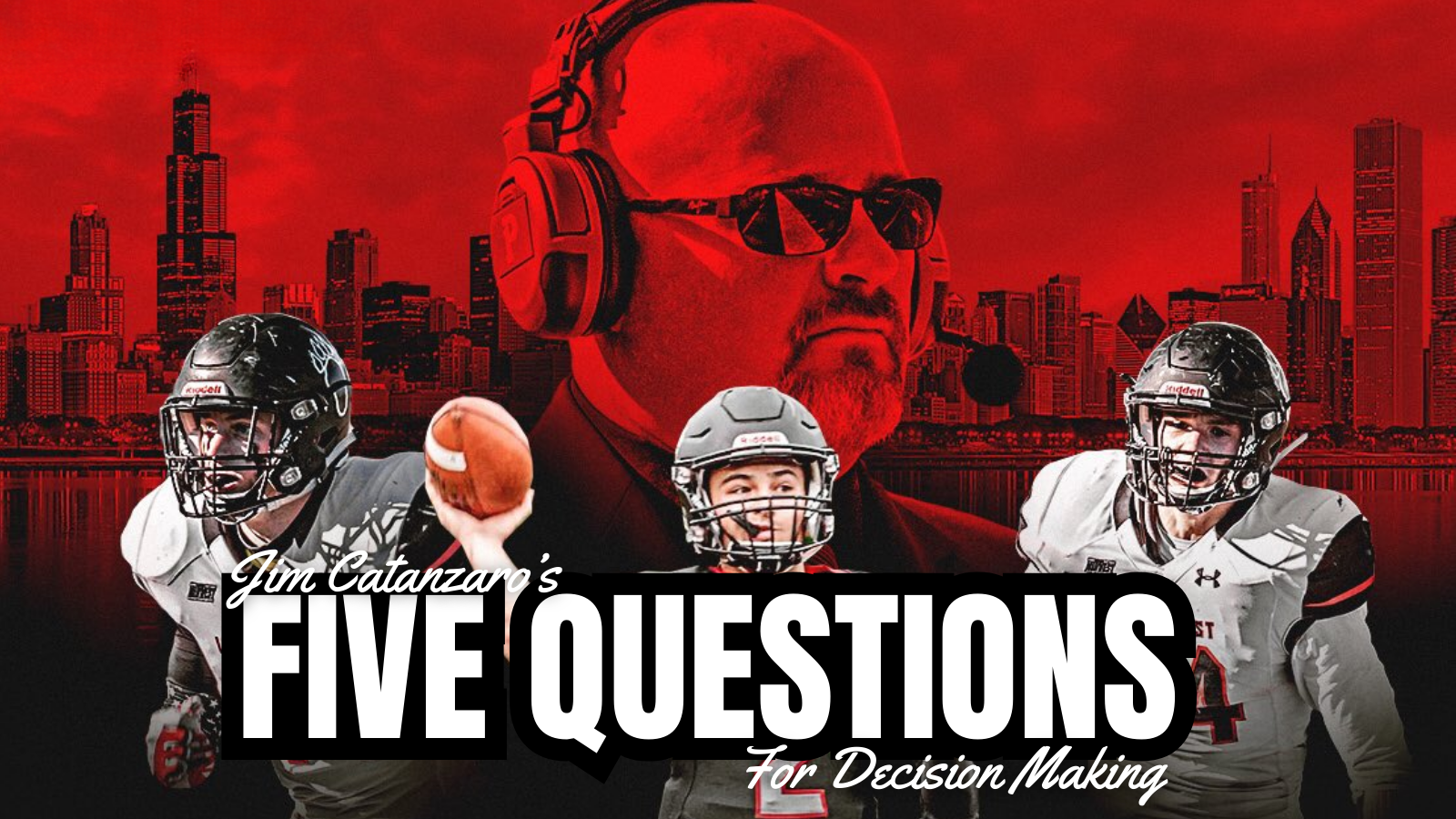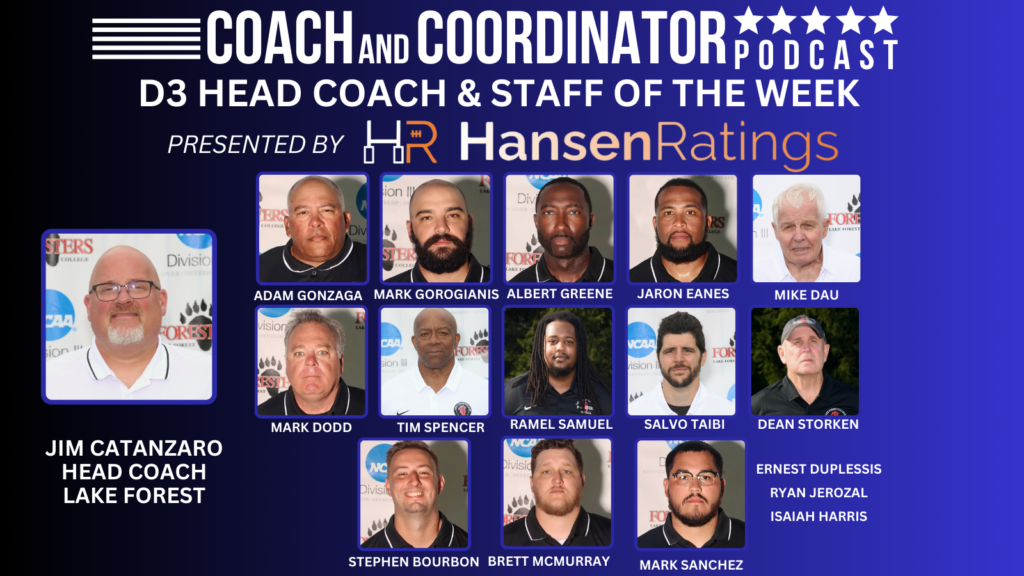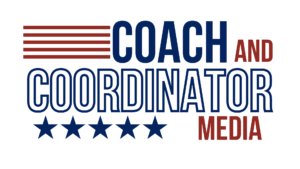
Coach Jim Catanzaro doesn’t make decisions on a whim. As the head coach at Lake Forest, Catanzaro drives every choice with purpose. He developed a five-question framework that aligns every decision with the program’s core values, builds its brand, and primes the team for peak performance. This framework benefits not only the players but also creates clarity for the coaching staff, giving them a structured, critical approach for evaluating each decision.
Here’s a look at Catanzaro’s five essential questions, with insights from the Coach and Coordinator Podcast, where he applied this framework to a recent issue with his team’s slow starts on offense.
The Five Questions That Guide Every Decision
Each question in Catanzaro’s framework cuts to the heart of why a decision matters. Every choice should align with the program’s philosophy, impact its goals, and reflect its values. Let’s break down each question and examine how they support Catanzaro’s coaching staff in making purposeful decisions.
Will This Help Us Be at Our Best When We Need to Be at Our Best?
Catanzaro makes every decision with high-stakes games in mind. Instead of focusing on immediate gains, he considers whether a decision will help the team excel during season-defining matchups, like conference games and playoffs.
“If we need to start fast against the top teams in our conference or the teams we may see in the playoffs, then [we need to] be at our best when we need to be,” he explains. Catanzaro’s team had faced slow starts on offense, so he and his staff decided to adjust their practice by adding five-minute competitive drills to increase intensity and focus. This targeted approach improved their performance when it mattered most.
For his staff, this question brings clarity and focus. Coaches can evaluate ideas based on whether they contribute to the team’s long-term goals rather than just the next game. This question encourages everyone to think strategically, helping them identify decisions that will have the most significant impact in crucial moments.
Does This Strengthen Our Brand and Culture?
Catanzaro emphasizes that every decision should reinforce the team’s identity and culture. He wants Lake Forest’s brand to be clear, purposeful, and unmistakable in everything they do, creating an environment that players, coaches, and recruits value.
“Does it strengthen our brand and culture? Absolutely, because being a slow-starting team is not the brand or culture that we want to be identified as,” Catanzaro says. He wants his team to be fast-starting, focused, and relentless, and every choice should support that identity.
This question gives the staff direction, aligning their contributions with the program’s values and brand. Each coach knows their ideas should reflect Lake Forest’s commitment to a tough, high-energy identity. Whether they’re choosing drills, strategies, or team-building activities, everyone operates with a shared understanding of what it means to be part of Lake Forest football.
Is This Simple and Sustainable?
While complexity can have its place, Catanzaro values simplicity and sustainability above all. He wants decisions that his team can consistently execute, rather than overly complicated plans that are hard to maintain.
Catanzaro highlights this with a recent example: “Five minutes out of Indy, that’s simple. It’s sustainable.” By removing five minutes from individual drills and using that time for intense offense-versus-defense competition, he introduced a manageable change that paid dividends without complicating practice routines.
This question brings relief to the coaching staff, knowing that adjustments won’t disrupt the program or add unnecessary complexity. When proposing new drills or tactics, coaches already consider how easy they’ll be to integrate and sustain. This focus on simplicity allows players to concentrate on execution rather than trying to understand intricate plans, keeping everyone in sync.
What Is the Impact on Recruiting?
Recruiting fuels a football program, so Catanzaro ensures that every decision considers the bigger picture of attracting new talent. While not every choice directly affects recruiting, the cumulative effect of the program’s culture, values, and strategies certainly does.
For Catanzaro’s staff, this question shifts their focus to the team’s future. They’re encouraged to think about how their ideas impact not only the current roster but also the athletes they want to attract. Every decision shapes the program’s image, making Lake Forest an appealing destination for players who align with the team’s values.
Does the Return on Investment Make Sense?
In a field where time and resources are precious, Catanzaro wants each investment to pay off. This question asks his staff to weigh the costs and benefits of their decisions and make sure that each choice has tangible returns.
Catanzaro believes in being intentional with resources. If a recruiting trip or training camp yields minimal results, he would rather allocate those funds to other priorities. By continuously evaluating the return on each choice, Catanzaro ensures his team only invests in what truly benefits the program.
This question empowers his staff to think critically, looking at both the short- and long-term gains. By prioritizing the return on investment, coaches make choices that are practical and resource-efficient. This mindset also adds transparency to decision-making, as every proposal must stand up to the value it brings to the team.
How the Five Questions Strengthen the Coaching Staff
Catanzaro’s framework does more than just provide structure; it fosters clarity and trust across his coaching staff. His team understands exactly how he evaluates proposals, which empowers them to think strategically and propose purposeful ideas. “I think it just makes it an environment where everybody’s on the same page and going in the same direction because there’s that understanding there, you know, not being close to the vest with the whys,” Catanzaro explains.
By understanding the reasoning behind every decision, the staff aligns effectively, creating a more collaborative and supportive environment. Each coach feels a sense of ownership over their ideas, knowing they’re contributing to a cohesive vision for the program. They aren’t just making random suggestions—they’re part of something bigger.
The Power of the Five Questions
Catanzaro’s five questions offer more than just a decision-making process—they provide a blueprint for building a football program that goes beyond wins and losses. His framework encourages everyone to consider how each choice impacts the team’s identity, values, and future. From assistant coaches to coordinators, every member of the staff is better equipped to make purposeful, aligned decisions.
By focusing on these five questions, Catanzaro has created a culture that thrives on unity, purpose, and clarity—a decision-making model that benefits not only Lake Forest but serves as a model for programs everywhere.
D3 Head Coach and Staff of the Week
For their efforts in a 66-0 win over Ripon, Jim Catanzaro and the Lake Forest Staff were recognized as the Coach and Coordinator D3 Head Coach and Staff of the Week presented by Hansen Ratings. Coach Catanzaro is assisted by Adam Gonzaga, Mark Gorogianis, Albert Greene, Jaron Eanes, Mike Dau, Mark Dodd, Tim Spencer, Ramel Samuel, Stephen Bourbon, Brett McMurray, Ryan Jerozal, Dwight Davis, Ernest Duplessis, and Isaiah Harris.
Notable Stats
Jim Catanzaro | Lake Forest | 66-0 vs Ripon
- Outgained Ripon 618-96
- Only 4 rushing yards shy of 300 yards each rushing & passing
- Only one drive all game without a score
- 3 INTs, 4 sacks, & 9 TFLs



